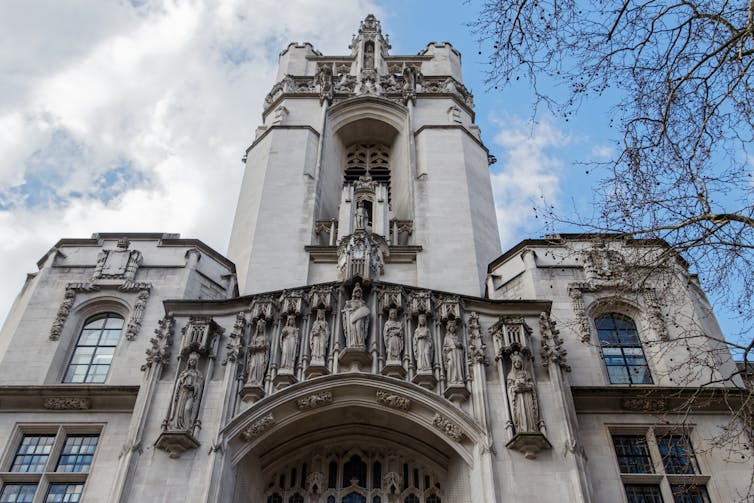property guardians legal limbo
Comment: Property guardians live in legal limbo despite new law
Published on: 10 April 2019
Writing for The Conversation, Derek Whayman discusses how a new law giving tenants the right to demand a basic standard of accommodation remains unclear for property guardians.

In the midst of England’s housing crisis, when many young people face rising rents in major cities, alternative forms of accommodation have emerged. Property guardianship is one example, where disused buildings are converted into residential quarters, and let out temporarily until the owners make further plans for the buildings.
The arrangement helps keep squatters out, offers young people more affordable rent and allows the owners to avoid paying the higher rates imposed on empty buildings. It might sound like a win-win situation for tenants and building owners, but in a sellers’ market, where tenants are easy to find, landlords can be less concerned with keeping accommodation in good repair.
In response to reports of hazardous conditions the UK government passed a new law which gives tenants in England and Wales the right to demand a basic standard of accommodation. This builds on tenants’ existing rights, which include deposit protection and longer notice periods.
Read more: Renters in England can now sue landlords over mouldy, cold or noisy properties – an expert explains
Yet the law for property guardians remains unclear: if they wanted to take their landlord to court to enforce basic repairs under the new law, a judge could rule that they are not tenants at all – merely licensees, which would leave them without legal protection.
This has happened already: while in one 2017 case a property guardian was held to be a tenant, in another 2018 case the guardian was held to be a licensee. In each case, the lower court judges took different positions on how to interpret the law.
If property guardians find themselves needing to appeal a judge’s ruling, in order to secure repairs for their home, they would have to take the matter to a higher court. This raises two difficult issues: for one thing, should it be the guardians’ job to take an active role in settling the law in the appeal courts, rather than leaving it to parliament – and for another, how should such challenges be funded?
Review overdue
The law is conventionally divided into lawyers’ law (such as contract law) and public interest law (such as family law and criminal law). Unelected appeal judges can legitimately change lawyers’ law, because its subject matter is less politically sensitive. But public interest law is for elected politicians to change.
When guardians try to enforce repairs against landlords, the case will be governed by both models: the judges decide who is a tenant, while parliament decides on what protections tenants are offered. Conventionally, this is considered legitimate, because if parliament does not like a court’s decision, it can change the law afterwards.
Yet the law determining whether a resident is a tenant was settled the 1970s and 1980s, when legal aid was widely available. Back then, tenants also benefited from rent control and secure tenancies. Now the context has changed, it’s not surprising that the law needs to be reviewed.

The problem is that taking a case to the Court of Appeal or the Supreme Court is expensive, and disproportionately so if one case is considered on its own. Depending on its complexity, by the time a case reaches even the county court costs can reach many thousands or tens of thousands of pounds. Appeals will cost more still.
Protecting public interest
When guardians take landlords to court over tenants’ rights, they’re not just deciding an individual case – they’re also setting a precedent for future cases, which helps to settle what the law actually means. Because of this, such cases are in the wider public interest. The legal aid system has a facility to provide extra funding for such cases – even to appeal.
If members of the public are to be co-opted in settling the law for the public benefit, they should be funded from the public purse. If funding is denied, it doesn’t just affect those bringing the case – it has an impact on the legal system itself, which becomes paralysed and unable to deal with more modern circumstances. And if the law is uncertain, the wider public are at a disadvantage too, because they will not know their rights.
There are nonetheless barriers to this process. Property guardian companies may prefer to settle, rather than risk getting a firm ruling that their residents are tenants, which may undermine their business model. Tenants might also prefer to avoid the stress of litigation and simply decide to find somewhere else to live. But the biggest barrier is the lack of state funding.
In an age of austerity, which has seen massive cuts to legal aid, the Legal Aid Agency may be unwilling to fund such cases to appeal. But failing to fund public interest litigation because of budgetry concerns is shortsighted and will cost the public in the long run.
Derek Whayman, Lecturer in Law, Newcastle University
This article is republished from The Conversation under a Creative Commons license. Read the original article.



